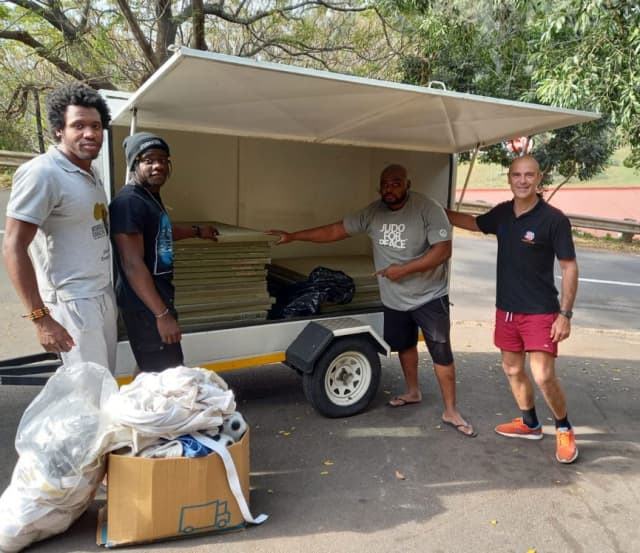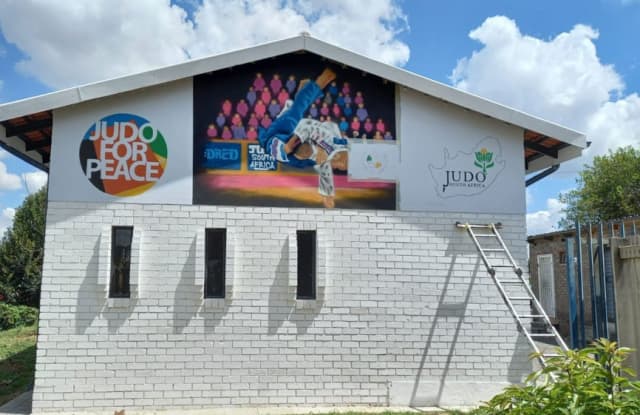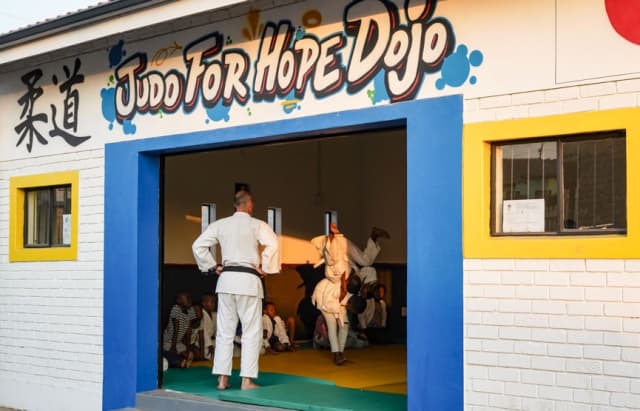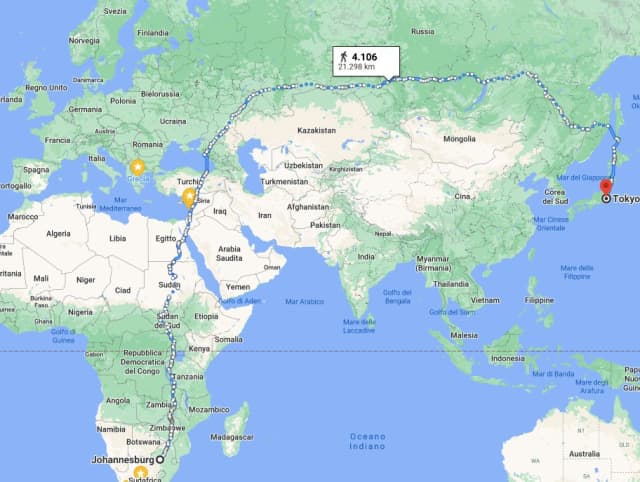Thanks to the Tokyo 2020 Olympic Games, the distance between South Africa and Japan has never been so small. In Johannesburg our refugee judoka, from the Judo for Peace programme, had the chance to follow the event and tuned in to the Olympic Channel to follow the exploits of all the athletes who celebrated the achievement of all achievements: participating in the Olympic Games. We asked them what they thought about the tournament and what their feelings were when watching them competing in the Nippon Budokan.
Moses, 20 years old, is a refugee from DRC and a judo blue belt. He said, “Yes I have followed the Olympic Games every single morning and I enjoyed the judo so much, of course but also the weight lifting. My favourite country was Japan, the host country. Abe Hifumi was the one I was really looking at, because he made his nation proud by bringing the gold home in his first Olympic participation. This is such an achievement and it motivates us, his fans.”

There was also an Olympic Refugee Team and for our refugee judoka across the world, this was more than just a symbol. Moses explained, “I think they are a good team and they should keep up the hard work; that's the only way to success. I wish that in the next Olympic Games, in Paris in 2024, I can be present, so I can capture all the action of the judo contests in reality.”
Carmi, 21 years old, is also a refugee from DRC and is a judo brown belt. He said, “Oh yes, I did follow the Olympic Games and I was supporting France. In judo I chose Teddy, obviously because he’s a role model and I feel that we like similar techniques. When it comes to judo he has been someone I've been looking at for so long. His contests are fun to watch but I also followed gymnastics. I like Nikita Nagornyy (ROC) because of his enthusiasm and passion for the sport.
I really believe that we should have more African athletes participating in the Olympics.”

Enock, 18 years of age, is coming from the DRC. He is also a blue belt. “I was supporting Portugal. I enjoyed watching judo and gymnastics. My favourite athlete is Jorge Fonseca in the -100kg weight category because he has been very consistent at all his competitions and he is spectacular.”
Having a refugee team at the Games is a great initiative. This gives motivation to all of us and to other refugees out there. My wish for the next Olympics is to have refugee athletes from my country participating and winning.”
Despite all the difficulties due to the pandeminc in the country, the Judo for Peace programme in South Africa continues to develop. A specific safety protocol was adopted for training and the group led by Roberto Orlando (IJF Academy alumni) was able to carry on with their activities. As for today, the programme has helped hundreds of youngsters to work within the judo values and to believe in a society where social cohesion is a true objective.

There is no doubt that the fact that the Olympic Games were held, that refugee athletes could participate and that great champions could become true role models for athletes in need, is a major achievement of these extraordinary Games. This is all about inspiration and Moses, Carmi and Enock, as well as hundreds of other refugees, were truly inspired. Tokyo has never been so close to Johannesburg.

